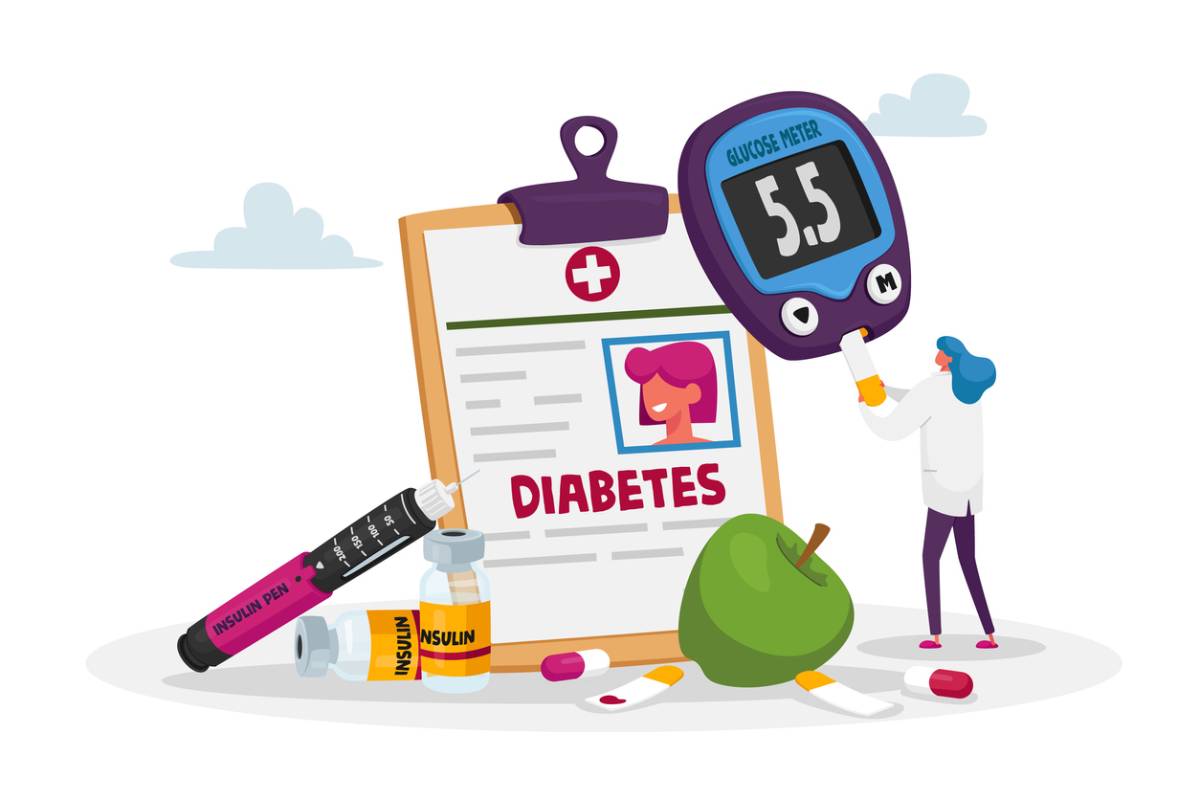Diabetes is a common condition that impacts millions of Americans. The condition is characterized by high blood sugar. It occurs when the body doesn’t produce enough insulin or can’t use the insulin it does produce. The condition can cause serious medical complications if left untreated. Even when effectively treated, there is a risk for diabetes-related conditions that can impact your health and daily life. You may wonder, what are common diabetes-related conditions?
What Are Common Diabetes-Related Conditions?
There are a number of diabetes-related conditions that can complicate your health. Below you will find some common diabetes-related conditions.
Celiac Disease:
Celiac disease is a common condition related to diabetes. They are both autoimmune diseases. Celiac disease and diabetes can occur at the same time due to shared genetic markers. Diabetes involves the immune system attacking insulin-producing cells. Celiac disease involves the immune system attacking the small intestine if gluten is consumed. Working with your medical provider is key to managing both conditions.
Thyroid Disease:
Thyroid disease and diabetes share similar risk factors. This is why they can possibly occur at the same time. Both are linked to genetics and autoimmune factors. Specifically including family history, obesity, sedentary lifestyle, unhealthy diet, age, and high blood pressure and cholesterol. Controlling your diabetes and living a balanced and healthy life is necessary to control both conditions.
Polycystic Ovary Syndrome:
Polycystic ovary syndrome (“PCOS”) are related as PCOS increases your risk for diabetes. PCOS is characterized by insulin resistance. Insulin resistance occurs when your body’s cells don’t respond to insulin. This can lead to elevated blood sugar levels. Both conditions also have similar risk factors. This includes things like obesity and an unhealthy diet. Living a healthy lifestyle, including regular exercise and a balanced diet, is key to managing your conditions.
Dental Problems:
Dental issues are commonly associated with uncontrolled diabetes. High blood sugar levels can promote bacterial growth in your mouth. Excess bacteria in your mouth can lead to oral health issues, such as tooth decay, gum disease, and even tooth loss. For those who have diabetes, gum disease can complicate the condition. This is because gum disease makes it difficult to control blood sugar levels. Working closely with your medical provider and dentist is necessary to effectively manage your oral and overall health.
Insulin Resistance:
Insulin resistance is related to diabetes. In fact, it is a key factor in the development of type 2 diabetes. Cells become less responsive to insulin for those with diabetes. This can lead to increased blood sugar levels which causes your pancreas to produce more insulin. The demand can be too great for your pancreas and result in inadequate insulin levels. This leads to high blood sugar and can make it difficult to manage your diabetes.
Diabetes Treatment
Diabetes is a serious condition that requires an effective treatment plan. Without this, serious complications can occur. Complications can include diabetic ketoacidosis, cardiovascular issues, kidney damage, vision issues, nerve damage, or foot problems. It is imperative to work with a skilled diabetes specialist. They can customize a treatment plan based on your unique needs. This may include medication and lifestyle changes. It is also necessary to regularly monitor your blood sugar levels and attend regular checkups with your doctor.
Common symptoms of undiagnosed diabetes include frequent urination, excessive thirst, increased hunger, unexplained weight loss, or fatigue. Some people may also experience blurred vision, frequent infections, slow-healing sores, or tingling or numbness in your hands or feet. If you experience any of these symptoms, schedule an appointment with the top nephrologist in LA today. Prompt diagnosis and treatment is necessary to effectively manage your condition.

